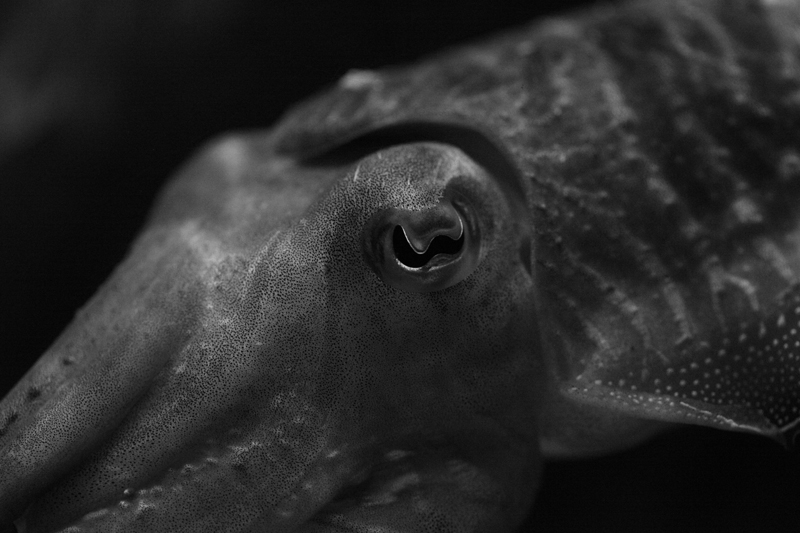
Corruption
I am about to recite a psalm that I know. Before I begin, my expectation
extends over the entire psalm. Once I have begun the words I have said
remove themselves from expectation & are now held in memory while those
yet to be said remain waiting in expectation. The present is a word for only
those words which I am now saying. As I speak, the present moves across
the length of the psalm, which I mark for you with my finger in the psalm
book. The psalm is written in India ink, the oldest ink known to mankind.
Every ink is made up of a color & a vehicle. With India ink, the color is
carbon & the vehicle, water. Life on our planet is also composed of carbon &
water. In the history of ink, which is rapidly coming to an end, the ancient
world turns from the use of India ink to adopt sepia. Sepia is made from the
octopus, the squid & the cuttlefish. One curious property of the cuttlefish is
that, once dead, its body begins to glow. This mild phosphorescence
reaches its greatest intensity a few days after death, then ebbs away as the
body decays. You can read by this light.
—Srikanth Reddy, Facts for Visitors (University of California Press, 2004)
For the past year and a half, I’ve lived apart from the majority of my books. Now that I am, at last, settled and have my possessions, I find myself almost exclusively reading books I’ve read before, as if meeting old friends and reminiscing about past exploits.
One of the poems I’m returning to often is the above, Srikanth Reddy’s “Corruption,” which begins:
I am about to recite a psalm that I know. Before I begin, my expectation
extends over the entire psalm. Once I have begun, the words I have said
remove themselves from expectation & are now held in memory while those
yet to be said remain waiting in expectation.
I am about to read what I already know. I have memorized these lines, internalized this poem. Yet I return to the book to mark the words with my finger, just as the poem’s speaker marks the words of the psalm “for you with my finger in the psalm book.” Something about its cyclical nature demands physical contact, asks the reader to trace its progress.
Francis Bacon writes, in Natural History, that “the inducing and accelerating of putrefaction is a subject of very universal inquiry; for corruption is a reciprocal to generation.” One cannot be had without the other.
To a large degree, “Corruption” is simply a series of facts: “Every ink is made up of a color & a vehicle. With India ink, the color is / carbon & the vehicle, water.” But the power and energy of the poem come not from the facts in isolation, rather the transition from one to the next. This progression enacts Bacon’s intertwined processes of corruption and generation. In one way, to read the poem is to watch it decompose. The psalm reverts to ink, which reverts to the cuttlefish the ink is produced from, which then itself decays. However, if we disengage from the poem’s narrative arc, we find that the cuttlefish at the end is really the beginning: the source of ink used to write the psalm. As it decomposes, the psalm takes us back to its pre-corrupt state.
Watching this cycle is consoling, just as the repetition of a psalm is meant to comfort. Each time Reddy destroys the current state of the poem, a new one emerges, postponing annihilation. In the psalm, we are perpetually in a present where “the words I have said / remove themselves from expectation & are now held in memory while those / yet to be said remain waiting in expectation.” The previous word falls away, ceases to exist. But the next word arrives immediately to take its place. All we have to do to perpetuate the cycle, to make the decay generative, is read.
At the psalm’s end, the cuttlefish decomposes into light: “One curious property of the cuttlefish is that, once dead, its body begins to glow.” The psalm casts this light back over itself. But, after a few days, the light “ebbs away as the body decays.” For a brief period of time, we “can read by this light,” but that time is also fast coming to an end. Returned to darkness, we must return to the poem: to read again in order for us to read again, for the first time.

